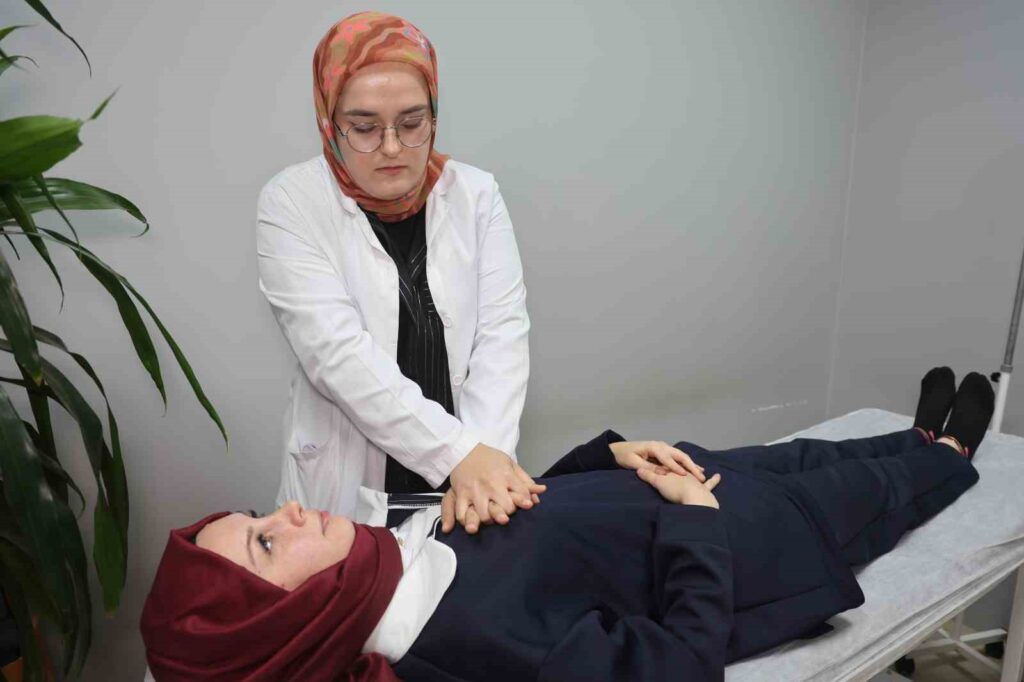Awareness call on World Hepatitis Day: “It’s time to take action”
July 28 is World Hepatitis Day, aimed at raising awareness about viral hepatitis and taking necessary precautions. Associate Professor Dr. Oğuzhan Öztürk stated that this year’s theme has been set as “Time to Take Action” and mentioned, “It is estimated that worldwide…”

July 28 is World Hepatitis Day, aimed at raising awareness about viral hepatitis and taking necessary measures. Associate Professor Dr. Oğuzhan Öztürk stated that this year’s theme has been set as “Time to Take Action,” adding, “It is estimated that around 354 million people live with hepatitis B or C worldwide. Most of these patients cannot access testing and treatment.”
According to research conducted by the World Health Organization (WHO), it has been determined that approximately 4.5 million early deaths could be prevented in low and middle-income countries by 2030 through vaccination, diagnostic tests, medications, and education campaigns. Gastroenterology Specialist Associate Professor Dr. Oğuzhan Öztürk, speaking on the subject, noted that viral hepatitis continues to be a serious health problem worldwide. Emphasizing that there is much to be done, Dr. Öztürk provided information on what needs to be known about hepatitis and the urgent points that require action.
“It is estimated that around 354 million people live with hepatitis B or C worldwide”
Providing information about hepatitis infections, Dr. Öztürk stated, “Hepatitis is a condition involving inflammation of the liver caused by various infectious viruses and non-infectious agents, leading to various health problems that can sometimes be fatal. There are five main types of hepatitis viruses known as A, B, C, D, and E. Although all cause liver disease, they differ significantly in terms of transmission routes, disease severity, geographical distribution, and prevention. In particular, types B and C cause chronic disease in hundreds of millions of people and together constitute the most common causes of liver cirrhosis, liver cancer, and deaths related to viral hepatitis. Approximately 354 million people live with hepatitis B or C worldwide, and most of these patients cannot access testing and treatment.”
“In Turkey, it is estimated to be 5%”
Stating that there are five main types of hepatitis, Dr. Öztürk said, “Hepatitis A and E are usually transmitted through contaminated water and food and typically do not become chronic. In Turkey, the hepatitis A vaccine administered during childhood has significantly reduced the spread of this disease. Hepatitis E can show severe progression, especially in pregnant women. It is encountered much less frequently compared to other hepatitis types. Hepatitis B and C are transmitted through blood, blood products, and sexually. The number of carriers of hepatitis B worldwide is estimated to be between 350-400 million, with this figure estimated to be 5% in Turkey. In our country, screening tests are conducted before marriage and during pregnancy, and the hepatitis B vaccine is administered to newborns.”
“Many patients can only be diagnosed at the cirrhosis stage”
Noting that hepatitis C infection is less common in Turkey but is the second most frequently encountered cause of chronic hepatitis, Dr. Öztürk stated, “The prevalence of hepatitis C in our country is between 0.5-1%. It becomes chronic in 55-85% of cases after acute infection, and because it usually does not show symptoms, some patients can only be diagnosed at the cirrhosis stage. The risk is particularly higher among individuals who use intravenous drugs. Additionally, the rising prevalence of tattoos and piercings done under unhealthy conditions also contributes to the increase of the disease. Therefore, screening is especially important among at-risk groups. Hepatitis C treatment used to involve long-term, severe needle therapies that were exhausting for patients, similar to chemotherapy. Today, treatment can be easily administered with oral medications, although the cost of treatment is high. In our country, hepatitis C treatment can be easily and freely provided. Despite all this, no vaccine has been developed against the hepatitis C virus. Therefore, individuals diagnosed with hepatitis C need to be treated quickly and effectively to prevent the transmission of the disease to healthy individuals.”
“Success rates can reach a maximum of 30%”
Stating that the hepatitis D virus requires the hepatitis B virus to cause disease, Dr. Öztürk noted, “Hepatitis D is seen more frequently in the southeastern Anatolia region of our country. There is no vaccine for it. Currently, the success rate with existing interferon treatments reaches a maximum of around 30%. To prevent this difficult-to-treat disease, the main focus should be on preventing hepatitis B infections. When we eliminate hepatitis B, we will also have eradicated hepatitis D infections.”
“National vaccination programs should be effectively implemented”
Dr. Öztürk emphasized that everyone in society has a role to play in the fight against hepatitis, stating, “Increasing awareness, effectively implementing national vaccination programs, paying attention to hygiene and sterilization rules, and conducting screening and treatment programs in at-risk groups are vital. Infected individuals should be treated quickly and effectively.”







